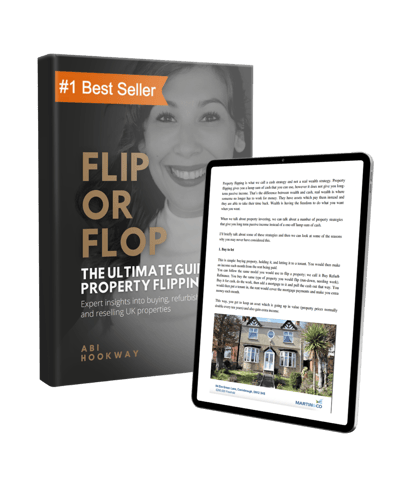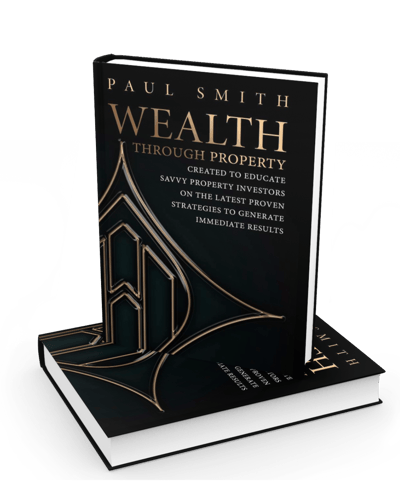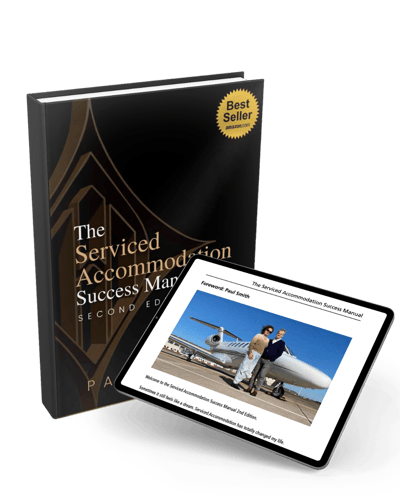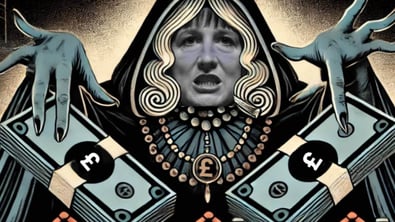What are we talking about this week?
We’re talking about prop co, op co. What on Earth is that and why should you be interested? Well, it’s the number one way in which large property portfolios and businesses operate. It’s a way to make millions and millions of pounds. If you want to understand how to truly scale a business, you can’t do it unless you know about op co, prop co and in case you think.
So let me give you an example.
We’ve been working with one of our very good friends now for about six months, a guy called Jonathan. One tax break, capital allowances. He knew about it, his accountant wasn’t so sure, so they didn’t do it. Six months in, he’s had all his capital allowance surveys done and he’s getting a three quarters of a million pound tax break. So he was aware of it, but didn’t know the right question to ask to get the accountant to do it. So, here was the right question
to ask. If I present you with a capital allowance survey, can you process it for me? Yes, says the accountant. Can you do the capital allowances for me? No, says the accountant. You need a specialist capital allowance surveyor, but if you don’t even know that that’s the question you need to ask, you’re going to be three quarters of a million quid light versus if you do. That’s just a little tiny example.
So the prop co is just shorthand for Property Company and the op co is just shorthand for Operating Company.
This one owns it owns the property. This one operates the property. So how could this work? Well, for instance, your prop co could be, let’s say your prop co, let’s say your property owning entity is your pension. So your prop co could be a SIPP, it could be a SSAS, so that’s self invested personal pension, that’s small self-administered scheme. That’s the one person, that’s for up to 11 people.
I’m going to give you a practical example of how we’ve used this for many years. So years ago, I had a SIPP, Paul and then Aniko had a SIPP, got a SIPP each. What did our two SIPPs do? Well, Aniko bought 40 percent and I bought 60 percent in our respective SIPPs of an office. So, the prop co in this particular example was two SIPPs. So it wasn’t strictly a prop co, it was two prop co’s acting together. Now, let me give you the purchase price on this. So, it wasn’t expensive, it was cheap. It was actually £38,000. Between us, we spent another £15,000 turning it into a nice office. That’s £53,000 and this is all paid for by our two pension funds but a pension fund, it can own an office, it’s not going to rent an office because why would it rent it, it doesn’t have any staff? So what we did is we had Touchstone.
Touchstone is our training company. So we’ve got various companies but this one was Touchstone Scotland. So Touchstone Scotland needed an office because it had six staff. This is me, Aniko, Aniko’s sister, you know, various staff. We needed an office. So Touchstone Scotland rented this office for six thousand pounds a year but Touchstone didn’t own it, the pension fund owned it. Between the pension fund and the operating company, we had to have a lease. Why hang on Paul, you’ve now got a lease with yourself, that’s not allowed.
It is actually because this is a pension fund, this is an operating company that owns, it runs events, it does training and its got staff and stuff. So that means that six thousand pounds a year goes back over there, but here’s the thing, if you do it this way, because that’s a rent, that’s getting paid to a pension fund, that is one hundred percent tax free. So all of that money goes back into that pension fund and I want to give you some more examples as well but the first simple example I want to give you is why op co, prop co is a good idea and can be very tax beneficial is here is your first example, which actually a pension fund or two pension funds that are the prop co and the op co is a training company.
How do you set the value of the rent? Well, it’s got to be a reasonable market rent. This is 50 odd thousand pounds, that’s £6,000. If that was 60 and that was six that would be 10% wouldn’t it? So, what is this? This is about 12 and a half roughly and that’s how commercial valuations work. They work on a yield percentage. It’s really important that you understand that and why it’s important. One of the main reasons I share that, well I wanted to give you an explanation of how op co, prop co works, that anybody that’s watching this, that’s got a requirement for an office, it doesn’t matter if it’s a dental surgery or a builder’s yard, if you don’t own it, you’re going to be paying rent to someone, aren’t you?
Would you like to have that rent come to you tax-free into your own pension fund, doesn’t have to be into your own pension fund, you can do it outside your pension fund but I hope that’s the first useful instalment on why op co, prop co is so important. So, I’m going to go up the pay grades a little bit now and I’m going to show you the next level. Okay, so we’re all cleaned up and we’re back and we’re ready for example number two.
Going up the pay grades a bit.
So, something I’ve just done recently, I’ve just moved to Doncaster. Big deal, why is that relevant? Okay, here is why it’s relevant. My house in Scotland,
it’s called Duneira, so we normally call it Duneira but you won’t know what Duneira is, it’s the name of my house. We owned it in our personal names.
Now, I want to give you the simple version, it’s actually a little bit more complex than this but I want to give you the simple version. What we did with the house is we sold it from personal names to an LLP, to a limited liability partnership. Actually, it’s Touchstone again but this time, it’s the main Touchstone Company, it’s the UK-wide one, not the Scotland one. Why did we do that? Well, we want Touchstone and many of our companies to have assets. Touchstone wants to use it because to give you feel for it, it’s an eight bedroom house. It’s a big house, it’s over 5000 square feet, sits in an acre, looks directly out onto the sea, it’s nice. As well as having eight bedrooms, it’s got big reception rooms that you can use for meetings and conferences and training as well as that, it’s got like a snooker room, it’s got a big dining area, so it’s a big house. So you can easily use it for corporate type training events. Eight people, eight bedrooms, so I guess you could have 16 people staying because they’re all double bedrooms.
So, what does Touchstone want to use it for? Well, Touchstone wants to use it for training and retreats. Why does it make sense for Touchstone to buy a training centre for training and retreats? Well, even though we’ve got this 7000 square foot office here in Doncaster, last year we still spent more than £150,000 hiring like big villas in Italy or Monaco or Dubai to take people to go and do training. So, if we know we’re spending, if I made it simple, it was more than a hundred fifty, but I’m going to pretend it was 144 cause if I divide 144 by 12, that’s 12 grand a month. Is that making sense? So, if I didn’t have this in my training company, what I would be spending would be, I’m going to say £12,000 a month on villas, you know, like big posh houses where you take delegates to do training and stuff, but because I’ve now got a big training centre in Scotland, that’s nice, that I can take people to on kind of top end retreat type experiences, then obviously Touchstone is going to save £12,000 a month.
The house is getting sold from me personally to Touchstone. I told you I’m going up the pay scale, that’s getting sold for £1,300,000. Now the mortgage that we’ve got in place, it’s a 20 year repayment mortgage with Barclays, the mortgage, round numbers it’s not exactly, it’s a few pennies different but the mortgage in the training company is £6,000. So, straight away, even though I’ve sold it for £1,300,000 now, where does that £1,300,000 go? That 1.3 million goes to Paul and Aniko’s personal bank account. Why? Cause I’ve just sold my house. How much tax do I have to pay on that? None. Why? Cause I’ve just sold my main personal residence. So there’s never any capital gains tax on your PPR, on your principal primary residence. We’ve lived there, it’s not a fiddle or a con, that’s why I’m putting it on the Internet for thousands of people to see. That means we got 1.3 million tax-free. Okay, we’ve still got a mortgage on it. The
mortgage on it is £500,000. So that means the other £800,000 after we’ve paid off the mortgage is ours in our personal name and the very fact that I can relocate some of my more expensive training experiences and retreats there means on a monthly basis, Touchstone is now going to be 6000 pounds better off. So, I’ve got £800,000 tax free, I got six thousand pounds a month more because I was paying 12 but now the mortgage is only six and I don’t even use it all the time
Why not? Because I’m not doing full, I’m not doing 365 days a year worth of retreats. So, I’ve also got a lease in place. So it owns it, it uses it when it wants to but I’ve done a lease with my SA company, with my service accommodation company. My serviced accommodation company that operates it, so my, in this case SA op co can run it when I’m not using it as a training centre. The comparable we’ve done and the bookings that we’re beginning to get in because we’ve just done this. So as a service department, it’s going out for 12000 pounds. Twelve thousand pounds. That my friends is per week. Now how do I value that? Well within reason, I can put whatever lease amount of money I want there cause if this company is making 12000 pound a week, can I put a lease between here and here for what, five grand a month, ten grand a month, 15 grand a month, I can put whatever I think is commercially reasonable and then based on my service accommodation company yield, that’s the value of the lease. So, I could release yet more money. The fact that my house is now, cause that was residential, it’s now commercial, what does that mean? It means on top of everything else, I now qualify for capital allowances. How much capital allowances do I qualify on a 1.3 million pound property?
Answer, around about 600,000 pounds.
So, on top of everything else, my prop co because of the way that I’ve got it structured, can get another 600000 pounds tax-free on top of that. So the next six hundred thousand pounds that my training company makes as profit, oh this is beginning to make sense Paul. So you’ve put an asset that gets capital allowances into your training company, so your training company doesn’t have to pay tax. Yes, I have. That wasn’t an accident. So this is a bit of a bigger one and I can give you bigger and bigger and bigger ones but we’re already 800000, 600000, 6000 pounds a week, 12000 pounds a week, we’re already comfortably into the millions and if you don’t understand how this op co, prop co works, you’re never going to make that leap. Now the good news is, it’s not hard. Now in this edition of Money Matters, what I’ve tried to do is give you enough information, so that whether you’re talking about a 50000 pound, 60000 pound property or a 1.3 million pound property, you can see, maybe not today but you can see one day how it’s going to make you millions. On the current project that I’m working on, is an office complex with five 15000 square-foot offices with a purchase price of 3.2 million and a rent roll in excess of 400000 a year that I believe I can push north of half a million pounds a year.
Now you do not want to be doing that kind of stuff without understanding op co, prop co, taxes, capital allowances and everything else but just by watching and well done for watching this video and I hope you’ve made it to the end cause I realise, some of you are gonna have a very sore head by now, but just by making it to the end of this video, you’ve taken your first and most important step and you’ve got an appreciation of what’s possible and I promise you it all starts, everything starts with op co, prop co. [Click here to watch the full episode]








